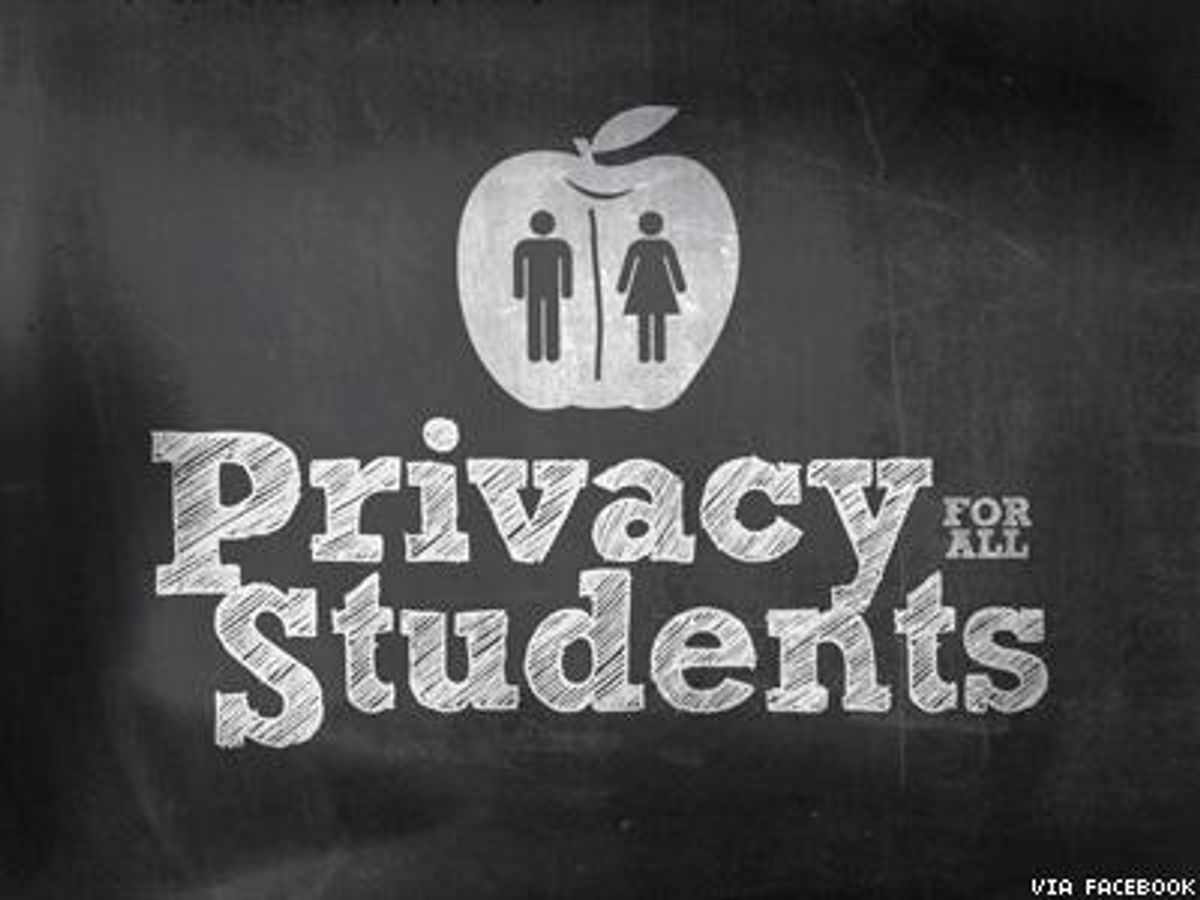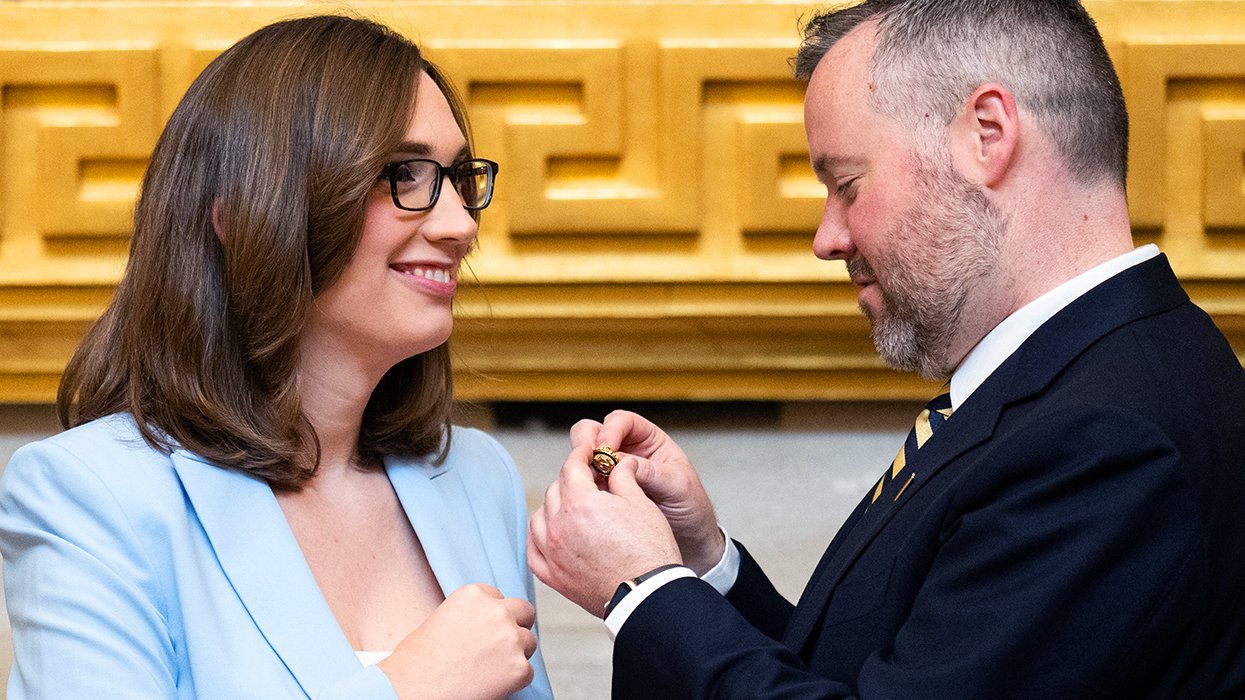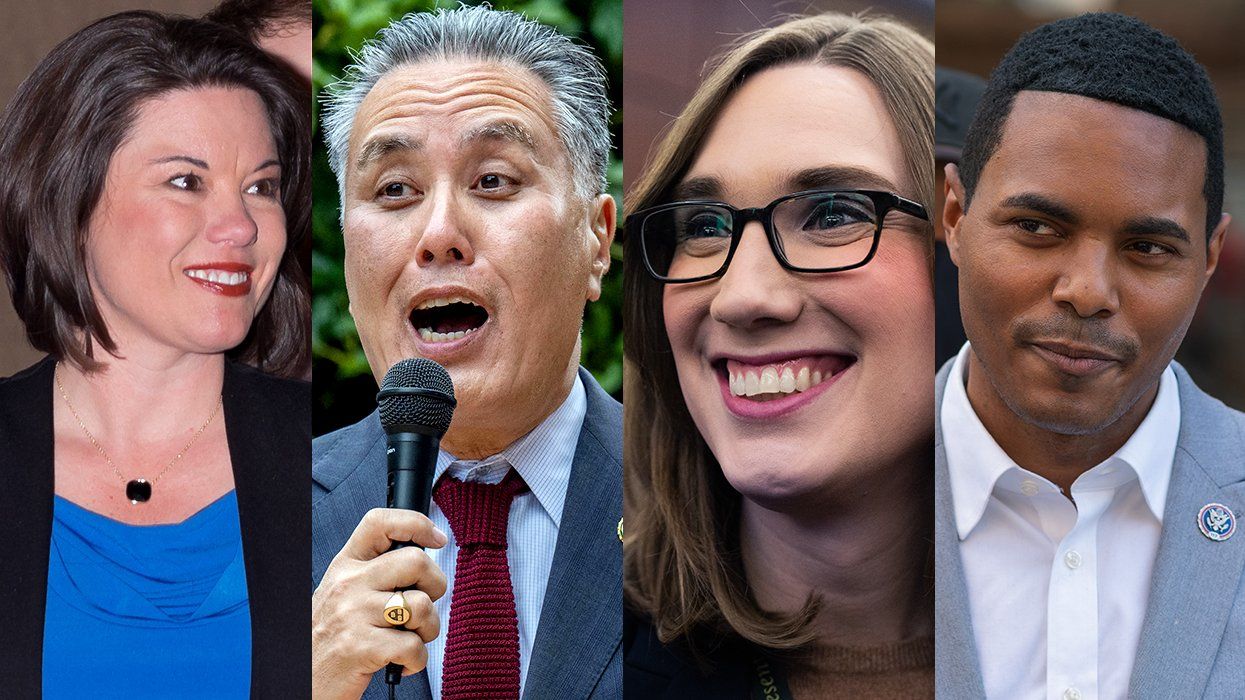Although it's still too early to say with certainty, LGBT activists expressed optimism about the fate of California's School Success and Opportunity Act, allowing transgender students in California K-12 schools to use the facilities and play on the sports teams that correspond with their gender identity.
Almost immediately after Gov. Jerry Brown signed the bill in August, right-wing activists led by the transphobic Pacific Justice Institute, the antigay National Organization for Marriage, and key Proposition 8 backer Frank Schubert began collecting signatures to put an initiative to repeal the law via a ballot measure in 2014. The right-wing coalition bills itself as the "Privacy for All Students" campaign, an ironic moniker considering that those involved in the campaign have engaged in ongoing, targeted harassment of a transgender teenager in Colorado to highlight what they perceive to be the "nightmare scenario" of trans kids in bathrooms.
The law, AB 1266, is the first to enshrine such inclusive protections into state statute, though several other states, including Colorado, have established similar policies mandating equal access for trans students through administrative decision.
To qualify the repeal measure for the ballot, supporters needed to turn in 504,760 valid signatures from currently registered California voters from a majority of the state's counties. Earlier this month, Privacy for All Students spokesman Frank Schubert said the coalition turned in 620,000 signatures to the secretary of state's office.
But an initial assessment of a random sampling of signatures is returning just 75 percent authenticity, which is "significantly below the average needed to qualify," according to the Washington Blade. If fewer than 95 percent of the 504,760 signatures gathered are deemed valid in the random sample, the measure will not appear on the 2014 ballot. If the random sample turns up between 95 and 110 percent valid signatures, each one will have to be individually verified.
"They're going to need an 81.41 percent validity rate [overall] to qualify for the ballot," John O'Connor, executive director of Equality California, told the Blade. "You can see that they're well below it currently. That 81.41 percent would be well above the average for any signature gathering activity. So, I mean, there's very real reason to hope that they're not going to, but nothing's conclusive itself until the process ends, and, sadly, we just have to give it it's time to work."



















































































